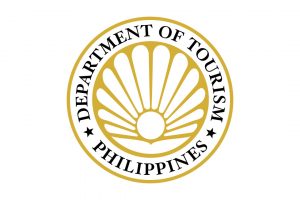Revolutionizing land ownership: How blockchain is changing the game

In the dynamic landscape of technological innovation, the marriage of blockchain and land registry is reshaping how property transactions unfold. This transformation isn’t just about efficiency; it carries profound implications, especially for Indigenous Peoples (IP) in the Philippines seeking to secure their ancestral lands.
Traditional land title registries, often fraught with complexities and vulnerabilities, encounter a revolutionary upgrade with the infusion of blockchain technology. Blockchain, a decentralized digital ledger, offers the virtues of transparency, security, and efficiency, presenting a paradigm shift in the management of property transactions.
Historically, land transactions grappled with challenges stemming from paper-based processes, intermediaries, and the omnipresent threat of fraud. Blockchain emerges as a potent solution, addressing these age-old issues through its decentralized architecture.
In a blockchain system, a digital ledger accessible to all parties involved in a property transaction is maintained. Each transaction is securely recorded in a block, creating an immutable chain of information resistant to tampering.
A standout feature of blockchain is the introduction of smart contracts — self-executing agreements with terms encoded into code. This innovation automates and enforces the terms of a property agreement, diminishing the need for intermediaries and streamlining the entire process.
In the Philippines, a country confronting challenges in land ownership, the adoption of blockchain in land title registry is gaining momentum. The objective is clear: digitize land titles and anchor them securely on the blockchain, promising a simplified, more transparent, and secure approach to property transactions.
The cryptographic features of blockchain play a crucial role in securing property transactions. Once recorded on the blockchain, a transaction becomes an immutable part of the ledger, establishing a clear and transparent chain of ownership.
Importantly, the adoption of blockchain in land title registry holds significant promise for Indigenous Peoples in the Philippines. By decentralizing the system, blockchain empowers IP communities, granting them direct control over their land records and reducing dependence on intermediaries. This shift towards democratization fosters a sense of ownership and security among Indigenous communities.
The benefits of utilizing blockchain in land registry in the Philippines are:
1. Transparent Ownership: Blockchain ensures a transparent and unalterable record of land ownership, reducing disputes and safeguarding the rights of Indigenous communities.
2. Security Against Fraud: The cryptographic nature of blockchain provides an unprecedented level of security, virtually eliminating the risk of fraudulent land transactions.
3. Empowerment Through Decentralization: Indigenous communities gain direct control over their land records, reducing reliance on external authorities and intermediaries.
4. Efficiency in Transactions: Smart contracts automate and streamline property transactions, reducing bureaucratic hurdles and ensuring swift, reliable processes.
5. Preservation of Ancestral Heritage: Blockchain’s transparent and secure nature helps in preserving the ancestral heritage of Indigenous Peoples, ensuring a lasting legacy for future generations.
However, as with any transformative technology, challenges persist. Upgrading technical infrastructure, adapting legal frameworks, and increasing public awareness are vital steps in ensuring successful implementation.
Innovative strategies can be employed to seamlessly integrate indigenous rights and protective measures into the fabric of a blockchain-based land registry:
1. Empowering IPs with Veto Rights: Granting IPs the authority to veto specific land transactions within the registry ensures their direct involvement in decision-making processes. This empowerment goes beyond mere consultation, placing IPs as active guardians of their lands.
2. Transparent Resource Tracking: The registry can serve as a transparent mechanism for tracking the movement and utilization of resources extracted from indigenous ancestral lands. This ensures not only fair compensation for the resources but also empowers IPs with valuable insights into resource management.
3. Community Support Funds: Establishing a dedicated fund within the blockchain infrastructure, sustained by nominal fees or voluntary contributions, can serve as a financial reservoir for supporting indigenous communities. This fund can be directed towards education, healthcare, and projects aligning with the aspirations of the community.
In conclusion, a blockchain-based land registry, when thoughtfully designed and executed, can transcend its technological essence to become a potent tool for the preservation of indigenous rights and the protection of ancestral lands. The combination of blockchain’s security, the efficiency of smart contracts, and the promise of a transparent registry marks a significant step towards a future where property ownership is not just a legal process but an inclusive, technologically empowered experience.
For Indigenous Peoples in the Philippines, it represents not just a technological leap but a pathway to empowerment and security in their ancestral lands.
Dr. Donald Lim is the founding president of the Blockchain Council of the Philippines and the lead convenor of the Philippine Blockchain Week. He is also the Asian anchor of FintechTV.




